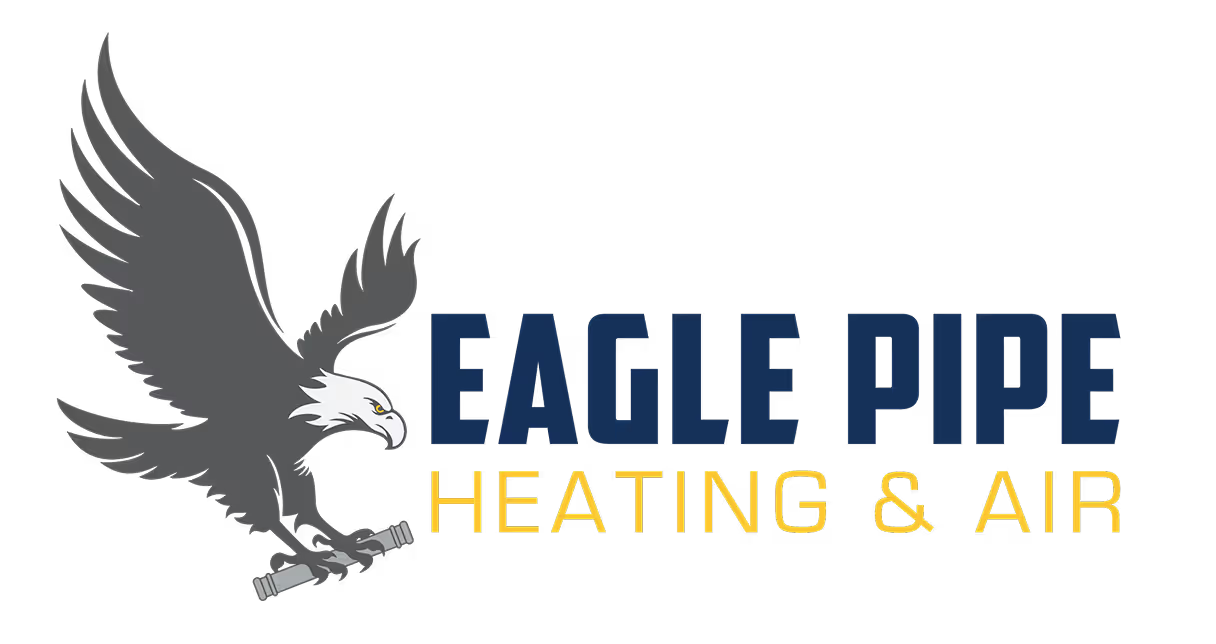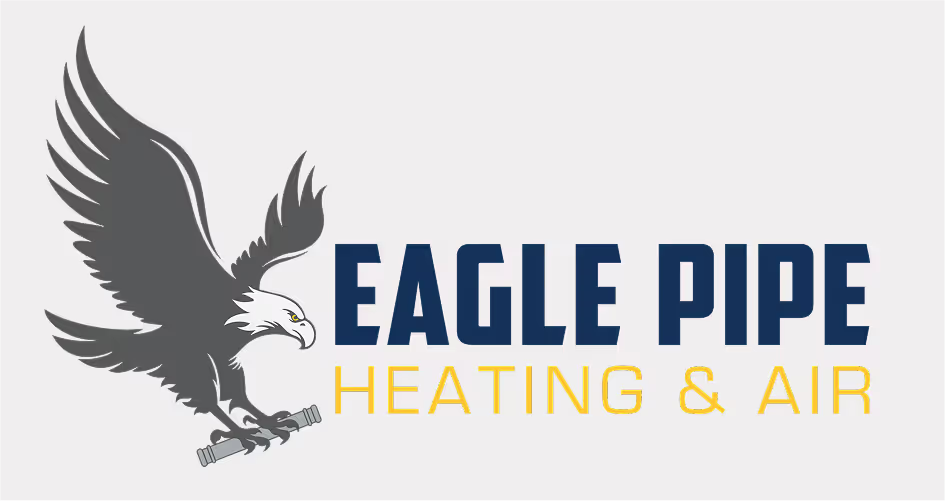Boost Your Home's Energy Efficiency: Save Money and the Planet

What is Home Energy Efficiency and Why Does it Matter?
Home energy efficiency means using less energy to perform the same tasks in your home, like heating, cooling, and powering appliances.
The top ways to improve home energy efficiency:
- Air sealing and insulation - Stop energy leaks and add proper insulation.
- Upgrade HVAC systems - Install heat pumps or high-efficiency equipment.
- Energy-efficient appliances - Choose ENERGY STAR certified products.
- Smart thermostats - Automatically optimize heating and cooling.
- LED lighting - Replace old bulbs with efficient alternatives.
- Water heating upgrades - Install heat pump or tankless water heaters.
Homes and buildings account for 40% of all energy used in the US, much of which is wasted. The average homeowner loses $200 to $400 a year due to drafts, poor insulation, and inefficient systems.
Simple improvements make a huge difference. Insulating your attic and basement can save 15% on heating and cooling costs, while replacing old windows with ENERGY STAR models can cut energy bills by 13%. Since heating and air conditioning account for more than half of a home's energy use, small changes create big savings.
Beyond saving money, improving your home's energy efficiency means better comfort with fewer drafts and more consistent temperatures. You'll also reduce your environmental impact—a win for your wallet and the planet.
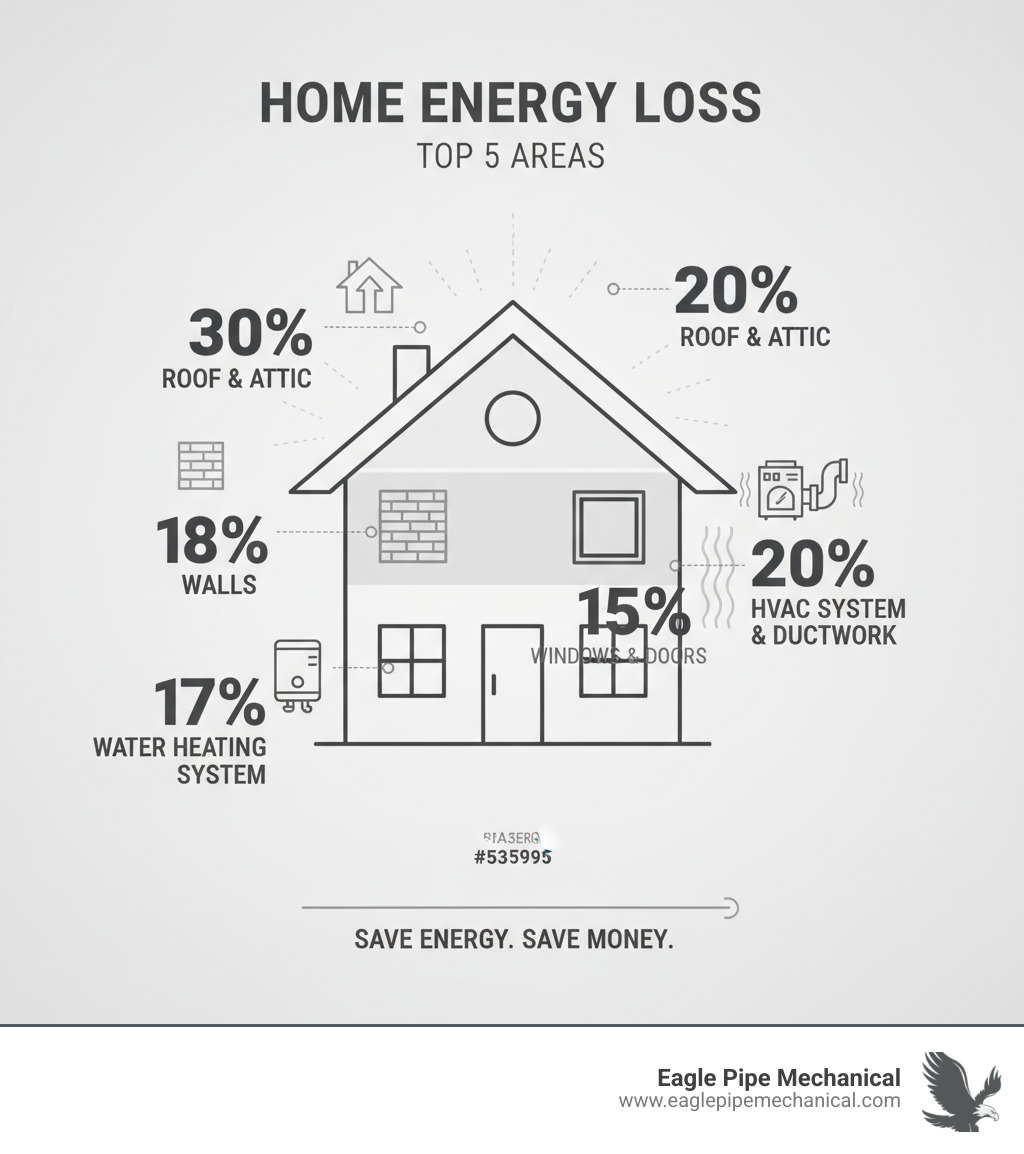
Start with a Plan: The Professional Home Energy Audit
Before spending money on upgrades, you need to know where your home is losing the most energy. A professional home energy audit is a comprehensive assessment that provides a top-to-bottom look at how your house uses and wastes energy. It saves you from expensive guesswork by creating a roadmap for the most impactful improvements.
During the audit, a professional uses tools like a blower door test to find hidden problems. This test uses a fan to depressurize your home, making it easy to find air leaks with thermal cameras. Common culprits uncovered by an audit include:
- Air leaks around windows, doors, and where pipes enter walls.
- Inadequate insulation, especially in attics of older homes.
- Outdated heating and cooling systems that are far less efficient than modern ones.
Even without an audit, you can spot clues. Drafts indicate leaks around windows and doors. Cold walls in winter suggest poor insulation. These small issues can add up to significant energy loss. For example, up to 30% of your home's heat can escape through an unsealed, poorly insulated attic.
The audit report will prioritize fixes for your specific home, complete with estimated savings, allowing you to maximize your return on investment. A professional home energy audit is the first step toward changing your home.
Fortify Your Home's Shell: Insulation, Air Sealing, and Windows
Your home's "shell"—its walls, roof, foundation, windows, and doors—is its primary defense against the elements. Strengthening this barrier is one of the smartest investments you can make in home energy efficiency.
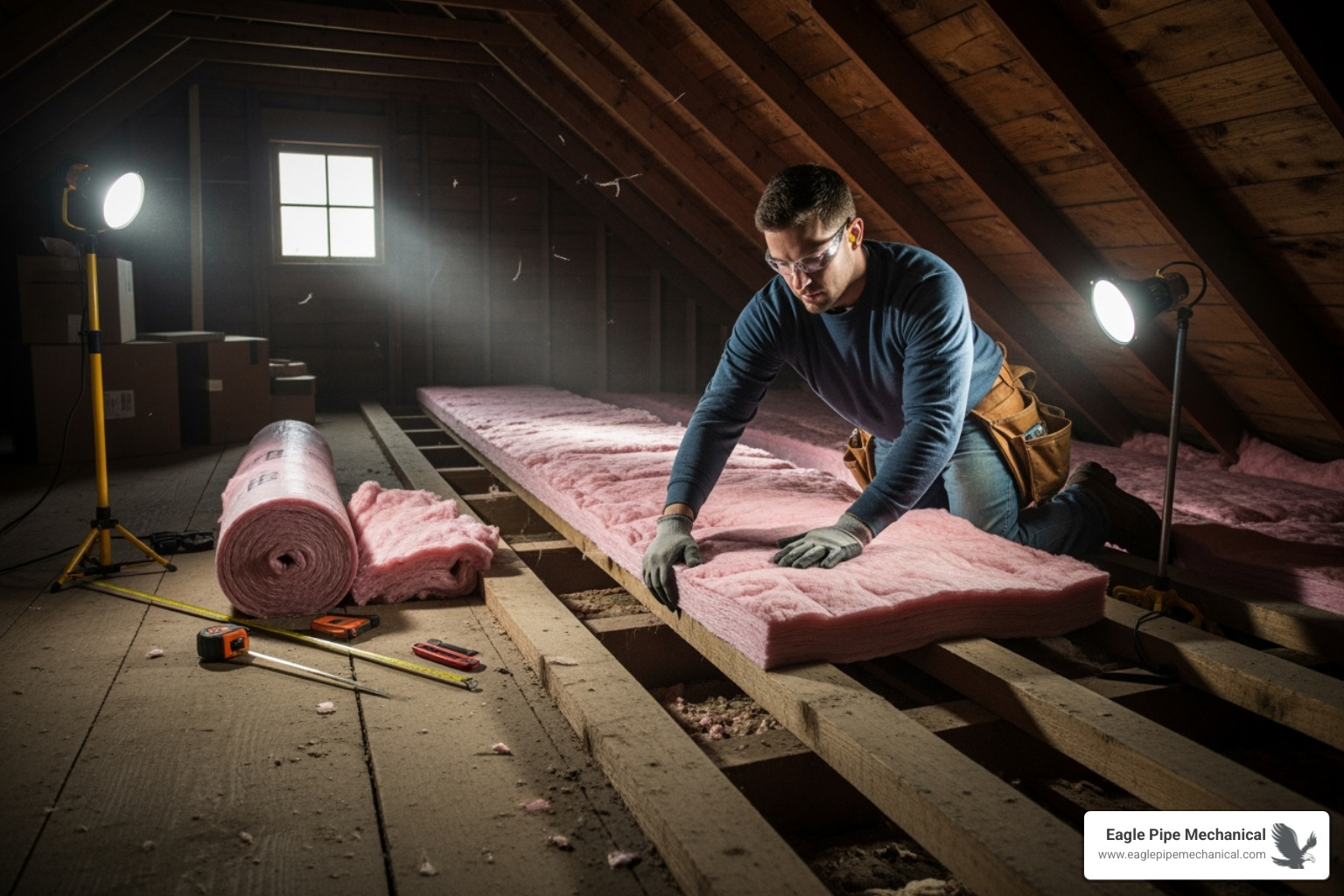
The Critical Role of Insulation and Air Sealing
Insulation slows heat transfer, keeping your home warm in winter and cool in summer. Its effectiveness is measured by R-value—the higher the R-value, the better it insulates.
Attic insulation offers a great return on investment, as heat naturally rises. Don't overlook basement and crawl space insulation, which helps eliminate cold floors and maintain consistent temperatures. Properly insulating these areas can save you 15% on your heating and cooling costs.
Insulation works best when paired with air sealing. Even small cracks and gaps around pipes, wires, and fixtures can add up to major energy loss. Use caulk and weatherstripping to seal these leaks. For homes with crawl spaces, crawl space encapsulation offers superior protection against moisture and temperature swings.
Upgrading to Energy-Efficient Windows and Doors
Old, single-pane windows are a major source of energy loss. Modern double or triple-pane windows with Low-E coatings reflect heat, keeping it inside during winter and outside during summer. Choosing ENERGY STAR certified windows ensures they meet strict efficiency standards.
Replacing old single-pane windows with ENERGY STAR models can save you 13% on your energy bills, while also reducing drafts and outside noise. Adding a storm door provides an extra layer of insulation. Learn more about ENERGY STAR products to find the right upgrades for your home.
Landscaping for Natural Efficiency
Strategic landscaping can also lower your energy bills.
- Shade trees planted on the south and west sides of your home provide natural cooling in the summer.
- Evergreen trees and shrubs planted on the north and west sides act as windbreaks against cold winter winds.
- In winter, open curtains on sunny days to let in natural heat. In summer, close them to block solar gain. This simple habit can save 2% to 12% on your energy bill.
Upgrade Your Core Systems for Maximum Home Energy Efficiency
Your heating and cooling equipment accounts for more than half of all energy used in the average household. Upgrading these core systems offers one of the biggest opportunities for improving home energy efficiency.
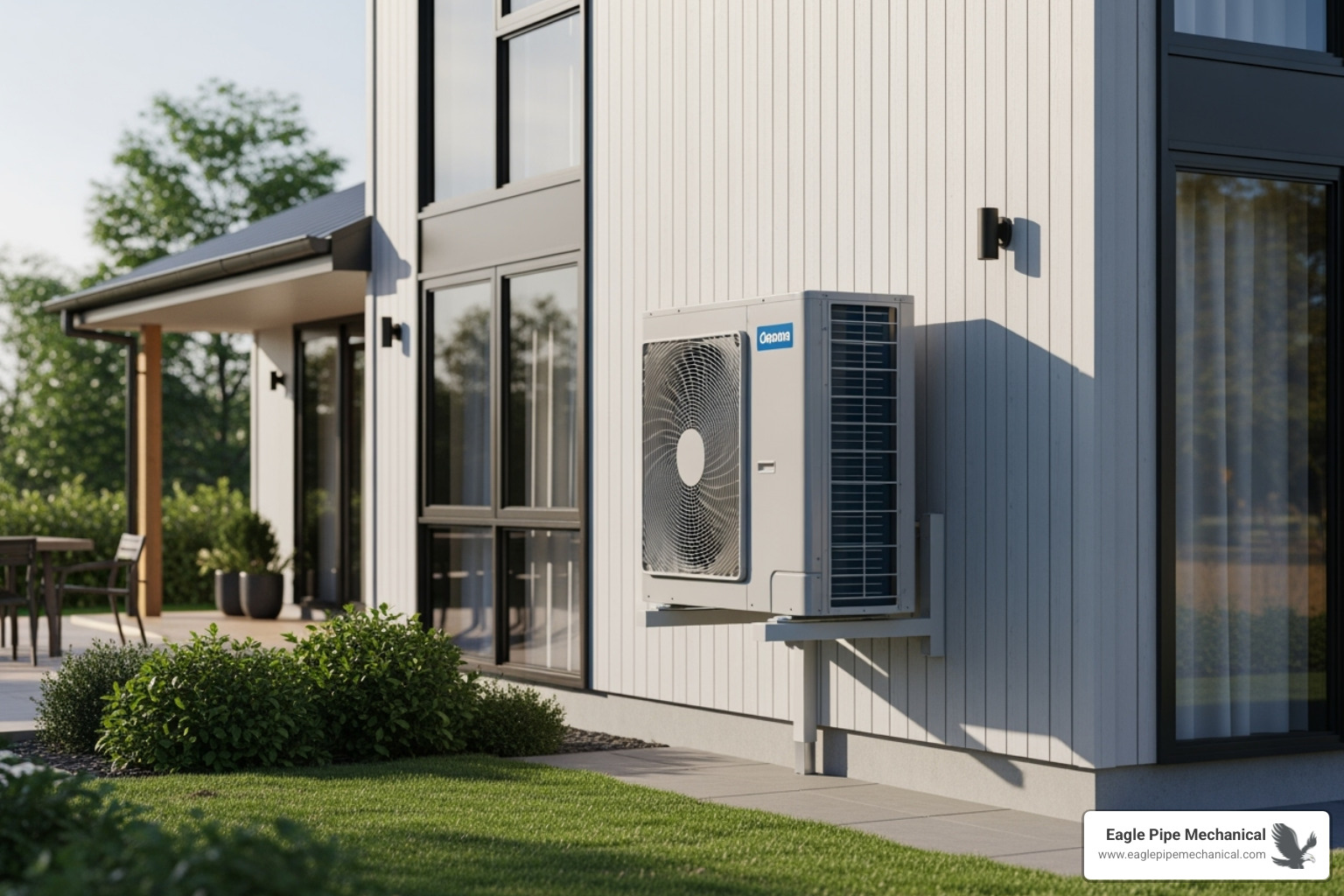
Choosing Energy-Efficient Heating and Cooling
Heat pumps are a technology for home comfort. They provide both heating and cooling by moving heat rather than creating it. This allows a modern heat pump to reduce electricity use for heating by up to 75% compared to older electric resistance heaters. At Eagle Pipe Mechanical, our Expert Heat Pump Installation Services help homeowners in Kitsap and Jefferson Counties achieve these savings.
For homes with unique layouts, ductless mini-split systems offer zoned comfort, allowing you to heat or cool individual rooms as needed. Ductless Mini Splits Boost Efficiency by eliminating the cost of conditioning unused spaces.
Proper maintenance is also key. Change your air filters every 1-3 months and schedule annual tune-ups. A typical house loses 20-30% of conditioned air through leaky ductwork, so sealing and insulating ducts is a highly effective improvement.
Smart Thermostats: The Brains of Your HVAC System
Smart thermostats learn your daily routine and automatically adjust temperatures when you're away, saving energy without sacrificing comfort. You can also control them remotely from your smartphone. Our Smart Thermostat Installation Benefits guide explains how these devices reduce energy bills.
Optimizing Your Water Heating System
Water heating is the second-largest energy expense in most homes, accounting for about 18% of total energy use.
- Heat pump water heaters extract warmth from the surrounding air, saving an average family of four $550 annually compared to standard electric models.
- Tankless water heaters heat water on demand, eliminating the standby energy loss of a traditional tank. Learn about Tankless Water Heater Installation Benefits.
- Insulating hot water pipes and lowering your water heater's thermostat to 120°F can reduce energy consumption by 6-10%.
- Low-flow showerheads and faucet aerators can save the average family 2,700 gallons of heated water annually.
Smart Habits & Efficient Tech: Everyday Energy Savings
While major upgrades are important, simple daily habits and smart technology choices also lead to significant savings on your journey to better home energy efficiency.
Lighting, Appliances, and Phantom Loads
Switching to LED lighting is an easy win, cutting your lighting energy use by up to 90% compared to old incandescent bulbs. Since lighting accounts for about 6% of electricity use in US homes, this simple swap adds up.
Bulb TypeEnergy Use (compared to Incandescent)Lifespan (compared to Incandescent)Cost (relative)Incandescent100%1x (shortest)LowestCFL70% less10x longerMediumLED90% less25x longerHighest
When replacing appliances, always look for the ENERGY STAR certified appliances label. These products meet strict efficiency guidelines and use significantly less energy. More on ENERGY STAR appliance rebates may be available to offset the initial cost.
Many electronics use power even when "off"—a phenomenon called phantom load. This standby power can account for a surprising portion of your energy bill.
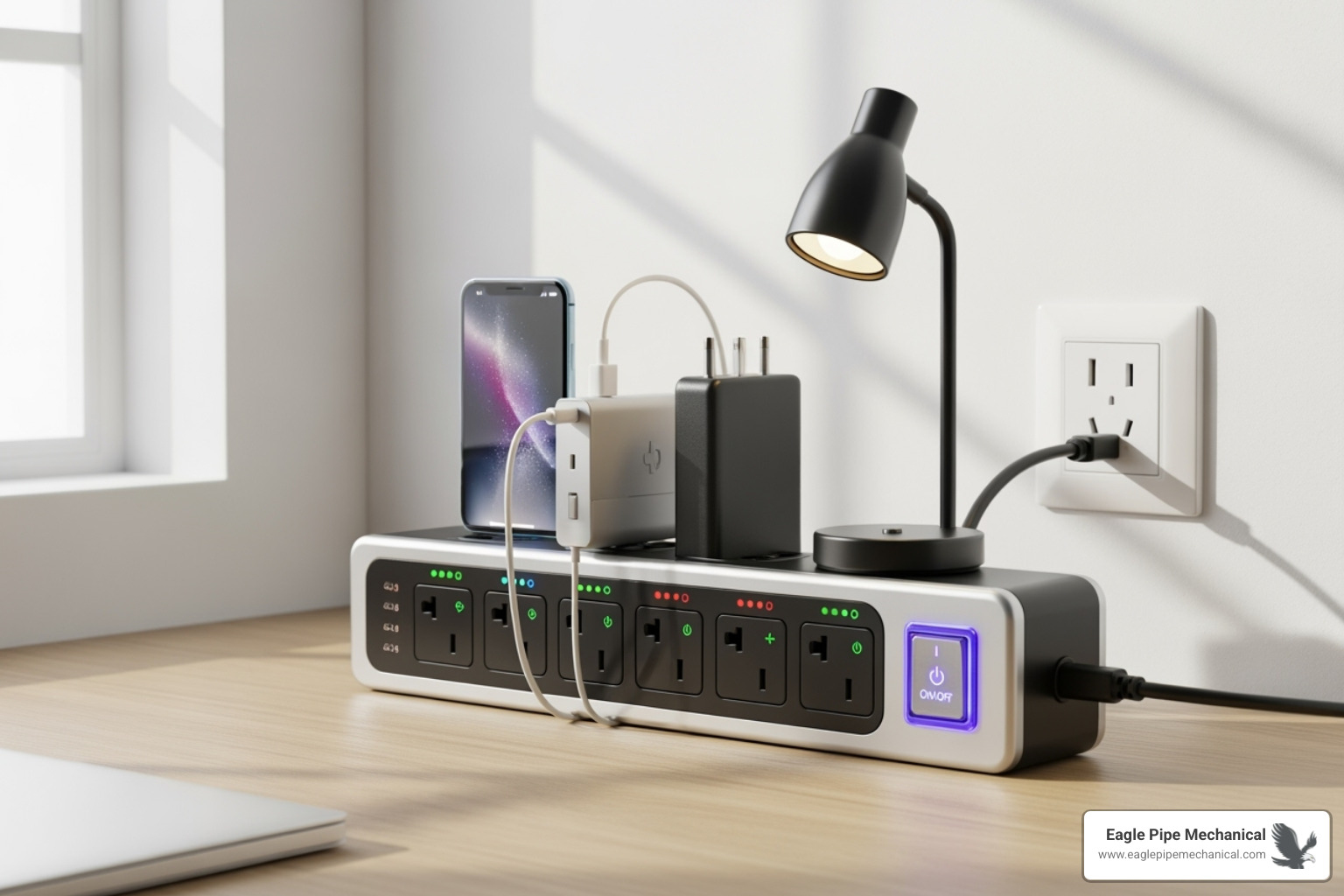
To combat this, unplug electronics or use smart power strips that automatically cut power to devices when they're not in use.
Efficient Practices for Laundry and Kitchen
A few smart habits can cool down the energy hotspots in your kitchen and laundry room.
- Wash clothes in cold water. Nearly 90% of the energy your washing machine uses goes toward heating water.
- Run full loads in your dishwasher and washing machine to maximize efficiency.
- Air-dry clothes when possible. When you need a dryer, consider an ENERGY STAR certified heat pump clothes dryer, which uses up to 70% less energy.
- In the kitchen, clean your refrigerator coils for better efficiency and use smaller appliances like a microwave instead of the full-sized oven to save energy on smaller meals.
Financial Incentives: Get Paid to Upgrade Your Home
Improving your home energy efficiency can put money back in your pocket through federal tax credits, state rebates, and utility programs. These incentives make it more affordable to create a comfortable and efficient home.

Tapping into Tax Credits and Rebates
The Inflation Reduction Act offers generous tax credits for qualified energy-efficient improvements made after January 1, 2023. Homeowners can qualify for credits totaling up to $3,200.
- There is an annual limit of $1,200 for most improvements, with specific caps like $600 for exterior windows and $150 for a home energy audit.
- A separate credit of up to $2,000 per year is available for larger investments like qualified heat pumps and energy-efficient water heaters.
In addition to federal credits, look for state and local rebates. Washington State and local governments often provide incentives for specific upgrades. Your utility company is another great resource, frequently offering rebates for smart thermostats, HVAC upgrades, and efficient appliances.
Remember to keep good records and file Form 5695 with your tax return. When calculating your credit, subtract any rebates you received from your total expenses. For the most current information, learn about the Energy Efficient Home Improvement Credit directly from the IRS. These incentives can dramatically reduce the upfront cost of your upgrades.
Frequently Asked Questions about Home Energy Efficiency
Here are answers to some of the most common questions we hear from homeowners in Kitsap and Jefferson Counties about improving home energy efficiency.
What is the most cost-effective way to improve home energy efficiency?
For the best return on investment, start with the "low-hanging fruit": air sealing and attic insulation. These upgrades tackle the biggest sources of energy waste for the least amount of money. Sealing cracks and gaps around windows, doors, and pipes prevents conditioned air from escaping. Adding insulation, especially in the attic where heat rises, keeps your home comfortable with less effort from your HVAC system. These improvements offer the quickest payback and make all other systems work more effectively.
How do I know if my appliances are energy-efficient?
Look for the ENERGY STAR label. This seal of approval indicates that the appliance meets strict energy efficiency standards set by the EPA. You may also see EnerGuide labels, which show an appliance's energy consumption compared to similar models. As a rule of thumb, if your appliance is more than 10-15 years old, a new ENERGY STAR model will likely be significantly more efficient.
Can I make my older home energy-efficient?
Yes, older homes often have the most potential for improvement. The key is a systematic approach:
- Start with a professional energy audit to identify your home's specific weaknesses.
- Prioritize the building envelope. Focus on improving insulation and air sealing in the attic, walls, and foundation first.
- Consider system upgrades. Once your home's shell is tight, upgrading to a modern system like a high-efficiency heat pump will deliver maximum comfort and savings.
Improving an older home is a journey, but each step builds on the last to create a dramatically more comfortable and affordable living space.
Conclusion: A More Comfortable, Affordable, and Sustainable Home
Improving your home energy efficiency is an achievable goal that leads to a home that's more comfortable, costs less to operate, and is better for the environment. Every step, from changing a lightbulb to upgrading your HVAC system, contributes to long-term savings and a reduced carbon footprint.
You can start small by sealing drafts or take a bigger leap by installing a high-efficiency heat pump. Each improvement brings you closer to a home with fewer drafts, more consistent temperatures, and lower utility bills.
At Eagle Pipe Mechanical, we've seen how these upgrades transform homes across Kitsap and Jefferson Counties. We understand the challenges of Pacific Northwest weather and have the expertise to guide you toward the best solutions for your home and budget. Our services range from heat pump installations and smart thermostat setups to tankless water heaters and comprehensive HVAC maintenance.
Ready to take the next step? A more efficient home is waiting. Learn how HVAC replacement can maximize your home's efficiency and find how the right system can transform your comfort and savings.
CUSTOMER TESTIMONIALS
Our customers’ experiences say more than we ever could. See how Eagle Pipe Heating & Air has earned trust across the Pacific Northwest with reliable service and lasting results.
